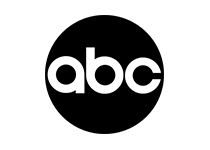The Latest From Our Blog

Why Should I Write Another Script When the Industry is Imploding?
Let me just get right to the meat and potatoes of this topic. The shift to subscription and cable services has drastically changed the business dynamic of film and TV. The old rules no longer apply. Seasoned and professional writers with impressive resumés are being cut loose. Producers and executives are being...

Learn How To Write a Great Script
Linda Voorhees and Tim Albaugh, along with our working professional screenwriting instructors have guided thousands of screenwriters through the journey from novice to pro in the worlds of feature film, television, and digital media. We know good screenwriting, and we know how to help you write a great script.
Choose Your Own Path
There is no one right path to success. At ProPath, we customize the learning experience for each of our writers not only to address their specific film and television writing needs, but also to maximize their creative and professional potential in the world of film, television, and digital media.
Get Started Now
Choose from our selection of Workshops, Seminars, and Free Webinars to accelerate your screenwriting career. If you are beginner start here for helpful tips to get started.



Workshops
Seminars
One on One Consults
What Our Writers Are Saying

Tim is a legend in the screenwriting space because of his amazing work with students. Any student would be lucky to be under his tutelage, and would become a much better writer because of it.

Linda Voorhees is the best friend a nascent writer or teacher could have. She is equal parts psychiatrist, cheerleader, and den mother. Her optimism terrifies me.

Linda was an invaluable instructor and mentor and played a major role in my growth as a writer. If you ever have a chance to work with her you should. Your scripts will thank you.

Tim’s workshop energizes you. You come away knowing all he wants is to help you make the story in your head better than you first imagined. He genuinely cares, which makes him one of the best mentors out there.
Where Our Students Have Sold Work




































Contact Us For More Information
Fill out this form or email us to learn more about how we can help you achieve your writing goals.



